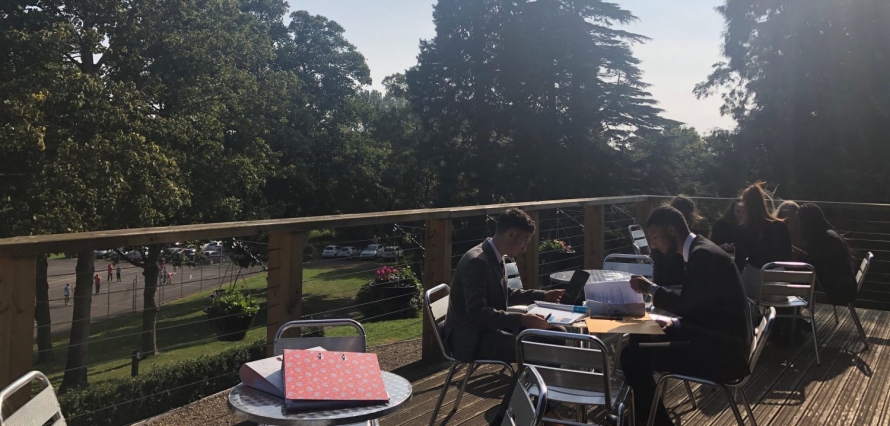
Harnessing your intellectual curiosity at Teesside High School Sixth Form
Friday 25 September 2020 | By Samantha HockneyAs last year’s Year 13 students head off for Freshers’ Week, the next cycle of university applications begins.
Every application we submit to UCAS has to describe exactly what we offer at THS Sixth Form, and we believe we have put together a portfolio of qualifications that helps our students achieve their full potential academically, but also allows their love of learning and enthusiasm for their subjects to be credited as well.
In times when universities could be basing their decisions on speculative predictions, admissions tutors have told us how much they value the AS examination, which we offer in a range of subjects, as an anchor to show potential. With our new Year 12 cohort, who have not yet experienced the pressure of a public examination, we will be working hard and collaboratively to make sure every student is supported in making progress towards reaching their targets and stretching above and beyond.
We have had great success in making sure aspirations are achievable, as students can learn in the style that is best suited to them; alongside the traditionally examined A-levels, we also offer BTECs in subjects from Applied Science to Criminology. These give Sixth Form students who prefer a more hands-on approach and continuous assessment a chance to progress to university, employment or degree apprenticeships. Even now, when workplaces are not fully open, our students are directed towards opportunities to complete online internships over half-term in careers from architecture to investment banking. All of our Sixth Form students are also taught the skills to complete an Extended Project Qualification (EPQ) if they wish to, and this adds yet another string to their bow. As with the Higher Project Qualification (HPQ), this extended project allows students to challenge themselves and explore areas of personal interest at the highest level of a full Level 3 qualification. Students learn skills which universities value as much as employers, such as project management and self-evaluation. They study the ethics of different research methods and how to collect, collate and display primary data, as well as academic skills like referencing and constructing a bibliography of evaluated sources.
As the EPQ is so flexible, creative students can submit an artefact with a report as their project, which can be anything from a charity fashion show to a screenplay. Students submitting a written report have used it to explore areas which can be outside the curriculum but of huge personal interest to them: from French poetry to costume design; from the depiction of mental illness in Victorian literature to the decline of the high street; from video game violence to the performance of elite athletes.
Not only has working towards an EPQ been shown to improve performance by a third of a grade in other subjects, all of our EPQ candidates receive a lower offer from their universities on the grounds that the EPQ has given them a headstart in the skills universities require, and with all our candidates achieving an A*/A grade, their hard work with their supervisors in putting their passion on paper has really paid off.
Seneca, the Roman historian, wrote that ‘by teaching, we learn’, and as EPQ coordinator I get to learn so much from our students’ deeply-held views and interests being drawn out and allowed to flourish, in a way that helps them onto the next stepping stone of their adult lives.
I cannot wait to see where this year’s intellectual curiosity will lead us!
Miss Bird
Want to find out more? Visit our Sixth Form Open Evening on Monday 19 October.





